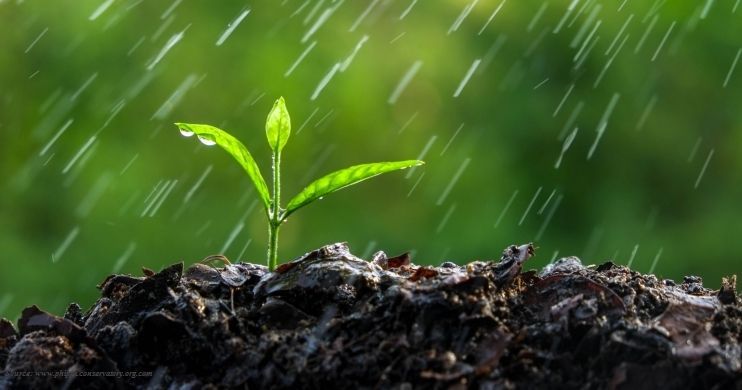
During this pandemic and the stay-at-home orders, I have started gardening in earnest. My daughter Brittany came to live with me last summer and together we transformed a back weed lot into a beautiful garden of flowers, flagstones, and a fountain. We learned a lot about seeds and plants, soil and watering (I’m still learning) and the practice of horticulture. Many small creatures; bees, insects, spiders, birds, groundhogs, squirrels, chipmunks, skunks, and rabbits have all visited our little haven and together, they have taught us many lessons about living in harmony with nature.
I have come to a realization that there is a whole group of gardeners who live by the philosophy of trying to live in an ecological balance with nature in their gardens. Natural means of diverting animals are used, such as planting marigolds or using raised beds and chicken wire fences. Insect pests are washed away with soap and water or hand-picking instead of chemical means. Growing plants that are native to the environment and planting seedlings that are non-invasive is encouraged. Rather than trapping or killing animals, there are those that choose to use other means such as a scarecrow or simply planting enough so that both the animals and humans share in the garden’s bounty. I have come to see the wisdom of planting an abundance of seeds rather than a few, knowing that many of them will be lost to natural means.
The whole experience has brought to mind a little folk song I used to sing with my little grade 1’s when I was a teacher.
“Four seeds in a hole,
Four seeds in a hole,
One for the mouse,
One for the crow,
One to rot,
And one to grow.”
Know that the essence of the natural world is abundance. One yellow dandelion head will yield over a hundred seeds, a female frog will lay over a thousand eggs, one pine tree can grow into a forest. Accept, too, that life gives and life takes away. Not all that you plant will yield a crop. Other creatures may eat it as a food source so that they may have life. Some seeds will not germinate and will rot in the hole.
We humans are a part of nature. There can be enough for all if we learn to cultivate and share what nature gives us freely. Gardening offers us an opportunity to connect with nature and find our balance with all living things. What we do to the land will ultimately affect our lives in the long run. Let us learn to live in harmony and ecological balance so that all life may thrive. Gardening can teach us that.